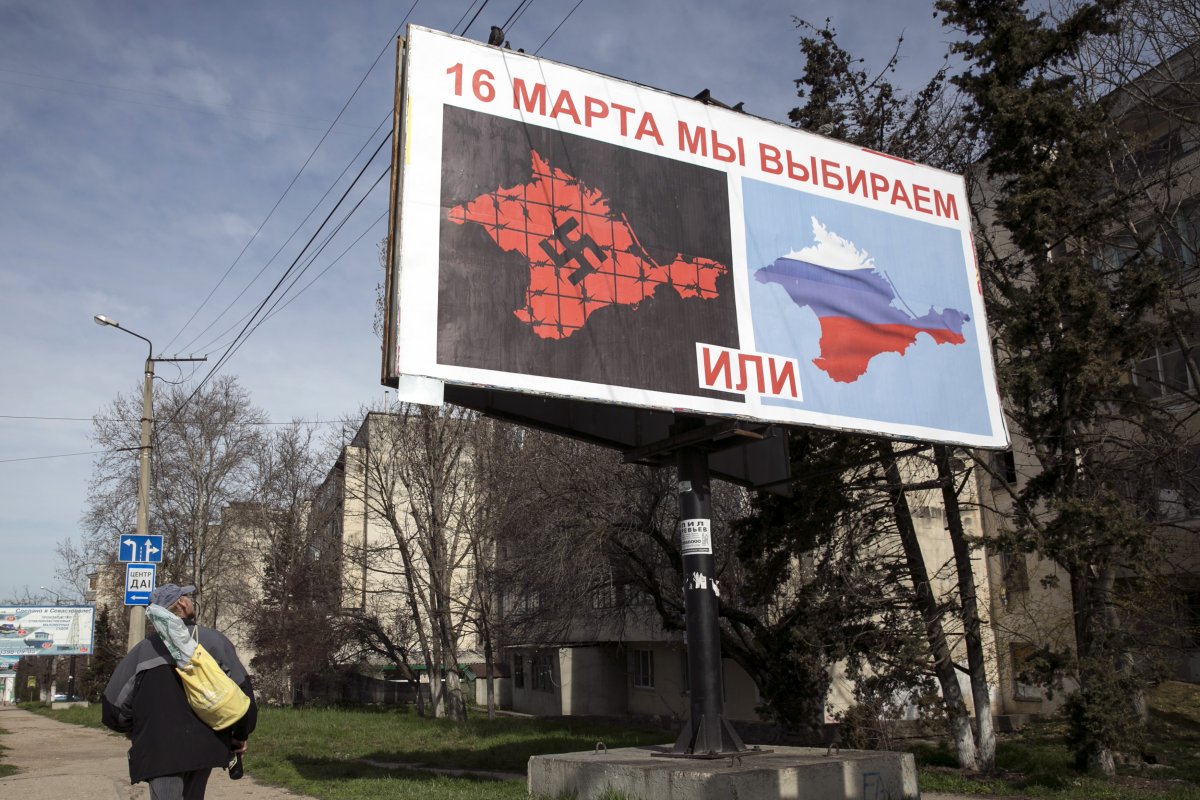
In Crimea, Ukraine, pro-Russian billboards feature two maps of the region — one covered in a Russian flag, the other colored red, covered by a giant black swastika.
The majority Russian-ethnic region held a referendum Sunday on rejoining Russia, after the violent collapse of the Ukrainian government.
While the results of the referendum were not known as of deadline, it seems widely accepted that Crimeans would vote in favour of rejoining their former colonizer.
With Russia occupying the area, a showdown is set between them and the West, one which STU political science professor Shaun Narine believes will be conceded to Russia.
“I think if anything’s going to happen that’s going to drive Russia out of Crimea … It’s going to have to be something internal to Crimea itself, and given the number of people in Crimea who seem to be sympathetic to Russia, that’s not necessarily something I would bet on,” he said.
“I don’t think there’s any possibility of military intervention that could make any difference, and I certainly don’t think that any sort of economic or political sanctions could have any effect at all.”
To understand why the international relations expert says this, one should look to the beginnings of the crisis. Protests have been occurring throughout Ukraine since late November, when then president Viktor Yanukovych halted talks with the EU in the midst of working out an important trade deal.
Russia’s opposition to the deal is a big reason for the ex-president’s backpedaling. Threatened with trade sanctions and jacked-up prices on the Russian natural gas and oil Ukraine depends so heavily on, Yanukovych pulled the plug.
The roughly $160-billion U.S. of Russian oil exported every year is the reason why many believe sanctions will prove futile.
“[Russia] sells too much oil and gas to Europe. There are too many European powers who have an interest in maintaining their ties with Russia,” said Narine. Only far away countries with little influence on Russia, such as the U.S., will be able to maintain any serious economic sanctions, and Russia will likewise be able to do without their spending.”
Despite their dependency, the majority of Ukrainians were outraged by Yanukovych’s turn towards Russia. Protests against his decision over time turned into a call for constitutional reform that would see the president transfer some of his power to the parliament. Then it became a bloody civilian coup.
By January, civilians were taking local governments, national ministries and eventually the president’s estate by force. Police and military units often abandoned their posts in these times, either out of support for the overthrow or a sense of self-preservation.
On Feb. 26, an interim Ukrainian government formed with former Prime Minister Arseniy Yatsenyuk given the role of temporary president. With this, internal tensions lessened. Now external tensions are the bigger issue.
The U.S. has become active in the political maneuvering over Crimea. They’re not likely to be anyone’s first choice to be reaching out, certainly not Narine’s.
“[Russia] has this whole thing about so called ‘green men,’ these people who are apparently Russian who are walking around [Crimea] in uniform, but it’s unmarked uniforms. And this is supposedly paramilitary groups or volunteers … Nobody believes that. I don’t think there’s any question that what Russia has done is in violation of international law,” said Narine.
“I think the Russians are very much in the wrong … At the same time there is no doubt that western countries have done similar things in the past, and the most obvious example is the American invasion of Iraq.”
The 2003 war in Iraq saw the U.S. go against the will of the U.N. Security Council and most of the rest of the world in occupying the country, using a U.N. Security Council resolution as their reasoning.
In similar fashion, the Russians are virtually the only ones arguing that Crimea should be given support to act autonomously, as the decision makers in Kiev are in fact illegitimate – the result of a coup.
“My point would be that both sides are in the wrong, and if we want International law to matter at all, then we cannot keep tolerating great powers just using and abusing international law whenever they feel like it.”
